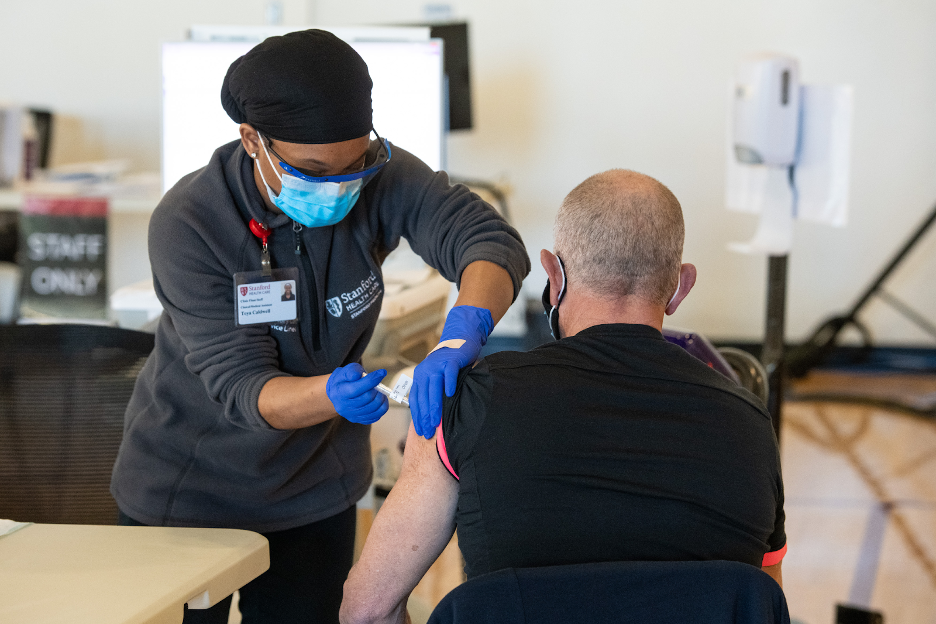Bay Area health officials strongly urged all employers to require employee vaccination against COVID-19 as soon as possible in a July 22 press release.
The announcement, endorsed by officials in Contra Costa, Santa Clara and San Francisco counties, comes alongside the rapid spread of the Delta variant and an increasing number of cases and hospitalizations from businesses and workplaces. Chris Farnitano, Contra Costa County’s health officer, said unvaccinated workers pose “a substantial health and financial risk to the workplace” and that workplace exposures “have led to serious illnesses and deaths.” Data show that even against the Delta variant, fully vaccinated individuals are less likely to contract the virus or to be hospitalized should they contract the virus. California state law already requires employers to enforce masking policies for unvaccinated employees. Regular COVID-19 testing of unvaccinated employees is encouraged but not mandated.
The updated guidance includes limited exemptions to employee vaccine requirements for medical or religious reasons. Medical exemptions are rare and usually involve life-threatening reactions to previous vaccines or known allergies to a component of currently available COVID-19 vaccines. The other exemption is for sincerely held religious beliefs, but there are currently no major religious organizations that have stated an opposition to COVID-19 vaccination. Employees with such exemptions should get tested weekly for the virus, according to Farnitano.
This new guidance now recommends COVID-19 vaccination as a requirement for employment. Farnitano said this recommendation “is about creating a safe workplace.” He added that there are financial benefits to mandating COVID-19 employee vaccination.
“Since [vaccinated employees] are less likely to get COVID-19 and even less likely to get severely ill, there is a savings on sick time and lost worker productivity,” Farnitano said.
Neetu Balram, the public information manager for the Alameda County Health Department, said the choice to require vaccinations rests with employers.
“Available COVID-19 vaccines are safe and effective,” she said. “Vaccination and masking are two powerful tools that work together to protect you and our communities from the spread of COVID-19.”
Stanford announced in May that all undergraduate, graduate and professional students coming to campus this fall will need to be fully vaccinated against COVID-19. Similar to the guidance of local health authorities, students may request exemptions for medical or religious reasons. Stanford plans to offer vaccinations to international students unable to get vaccinated in their home countries upon their arrival to campus in the fall. According to a May 13 survey of undergraduate students by the Associated Students of Stanford University (ASSU), a majority of students are already fully vaccinated. 96% of 1,020 student respondents on campus and 93% off campus disclosed plans to be fully vaccinated by June 11, as of the survey date.
